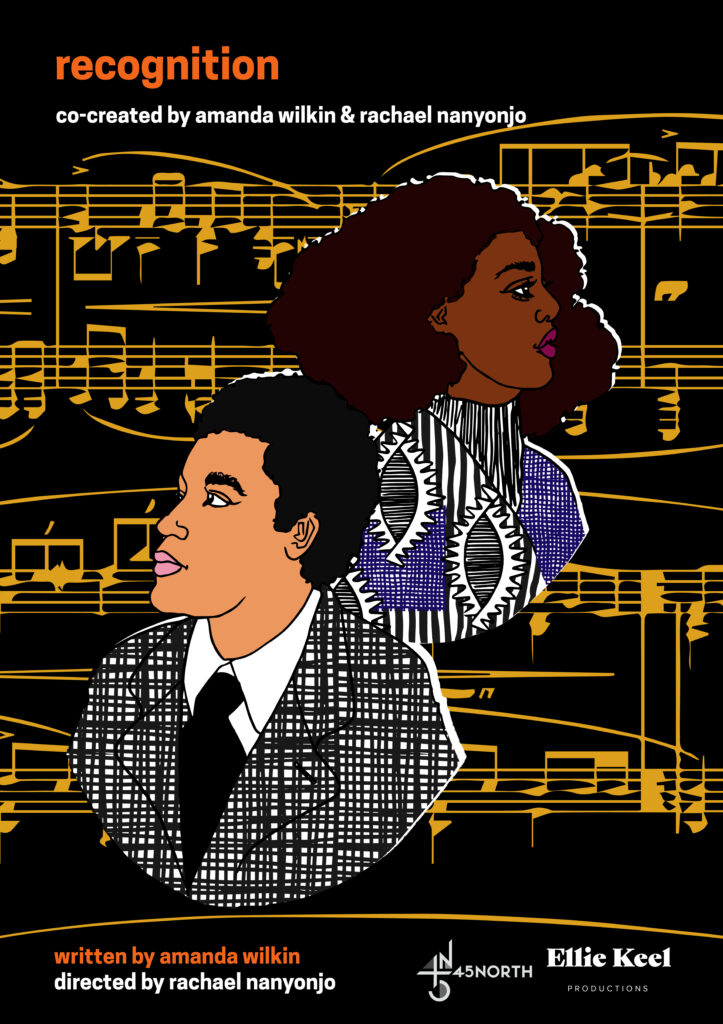Streaming online as part of Written on the Waves – book via http://www.forty-fivenorth.com/writtenonthewaves
4****
Reviewed by Claire Roderick
45North and Ellie Keel Productions’ Written on the Waves series of audio plays continues with Recognition, the story of the experiences of two black classical musicians a century apart.
Co-created by Amanda Wilkin (writer) and Rachael Nanyonjo (director), the struggles of Song (Shiloh Coke) to finish her composition and meet her college deadline is interwoven with the story of Samuel Coleridge Taylor (Obioma Ugoala), a composer and musician she had never heard of, but whose life story resonates with and inspires her as she learns of his legacy and the impact it had on the music industry.
Finding a letter written by Samuel Coleridge Taylor in 1912 and wondering at the eloquence and confidence as he declares himself the equal of any white man, Song is amazed when he mentions other notable creatives – Dumas and Pushkin – of African descent, and questions why she was unaware of this fact.
Even after 100 years, Song’s experience at music college is the same as Samuel’s as she is usually the only black person in the room, although nobody has tried to find out if her hair will burn. As she should be completing her composition, Song cannot move on from exploring Samuel’s life, wondering why there is so little to be found in his own voice, and relying on the recollections of his contemporaries.
After being isolated for so long in England, Samuel’s experiences in the US open his eyes and he finally feels a sense of belonging, and longs to include the soul and spirit of his people in his new compositions, leading to his greatest successes. This contrasts with the well-meant but ill-judged advice Song receives from a tutor to not make every composition about her identity as she feels huge pressure to represent her community and deals with the cost of black excellence as she yearns for the opportunity to collaborate and create with other black musicians in an education system with such a whitewashed curriculum and history.
Ugoala’s smooth tones are believably Victorian, and the contrast with Coke’s modern language and intonation, along with the varying lengths of each section creates a fantastic rhythm and musicality. Cassie Kinoshi’s original music, Deschanel Gordon on piano, Fra Rustumji on violin and Zara Hudson-Kozdoj on cello layer even more emotion and atmosphere onto the play.
The beauty of Amanda Wilkin’s writing does not detract from the huge frustration and anger at the inequalities and injustices that are still prevalent today, and even as Song acknowledges that every attempt to shine still comes at a price, she finally finds her inspiration thanks to Samuel and loses herself in her music – as the listener has been lost in this lyrical and poignant play.

